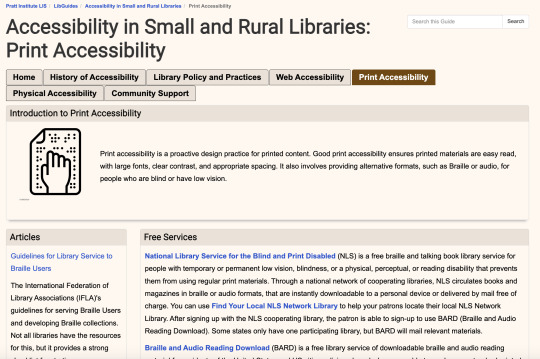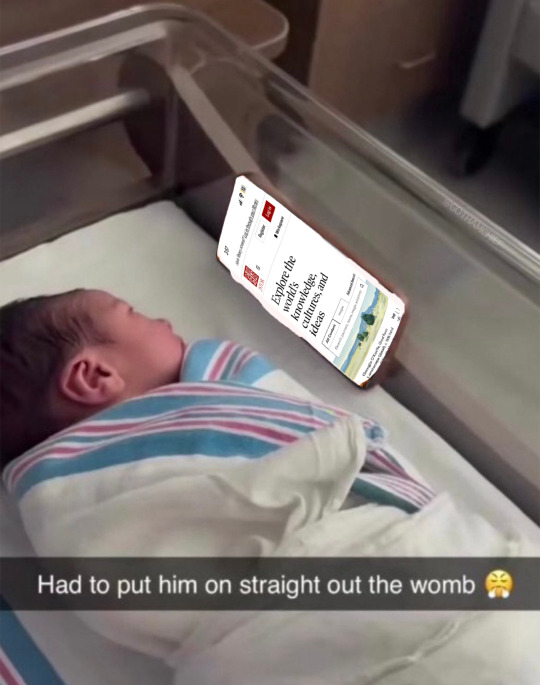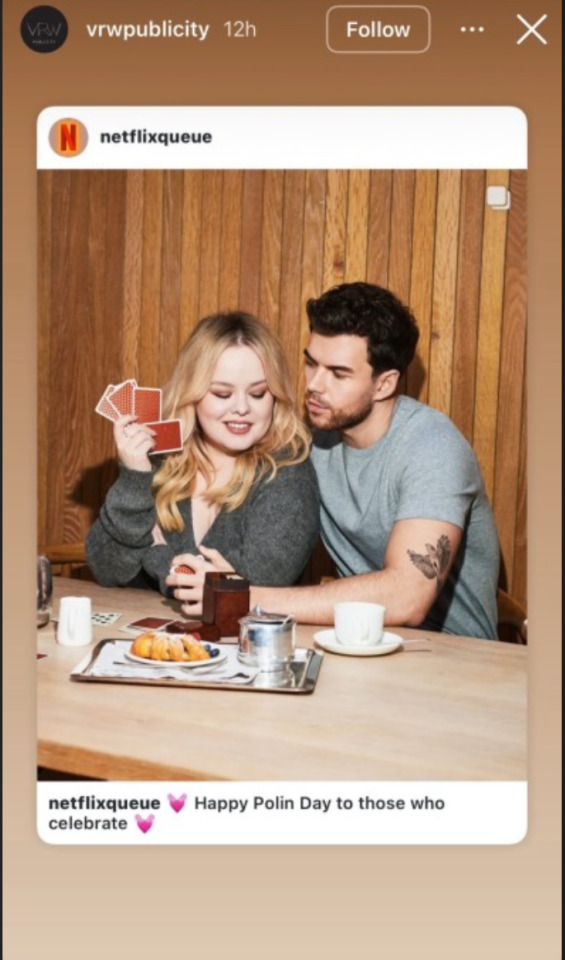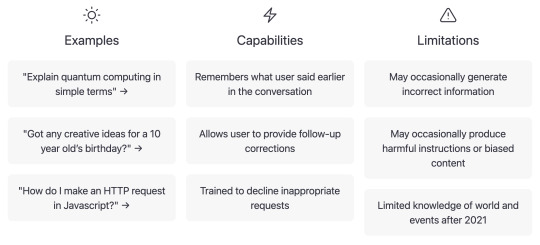#libguide
Explore tagged Tumblr posts
Text
FYI ⬆️⬆️⬆️⬆️⬆️⬆️⬆️
Heyo it’s back to school time and here’s a research tip from your friendly neighborhood academic librarian.When searching for any topic on the internet just type in the word ‘libguide’ after your topic and tada like magic there will be several beautifully curated lists of books, journals, articles, or other resources dealing with your subject. Librarians create these guides to help with folks’ informational needs, so please go find one and make a librarian happy today!!
47K notes
·
View notes
Text
Yooo check out my Franklin Expedition LibGuide.
(It's very introductory resources that most of y'all are well acquainted with. Apologies.) But! If you are unfamiliar with it and curious about wtf your mutuals in The Terror fandom are talking about all the time, then this might be a useful start!
#This was my final project for one of my classes and I just found out I got a good grade on it! yipeeeee#the terror#franklin expedition#polar exploration#libguides
95 notes
·
View notes
Text
No thoughts just this playlist I’m making for the What We Become fic oscillating between episodes of the Magnus protocol while I do my libguide project and consume so much caffeine I have a perpetual feeling of sneeze (you’ll read the irony of this in ab 2 seconds)
That being said if anyone wants to send me their favorite reputable source about or relating to coffee and/or ideas I will accept them - I have culture, science, history, modern trends, podcast episodes, tik tok videos, and even sources that pull on the influences of dairy farming & the precariat class that I’m gonna figure out how to categorize later 🫶🏼 it’s gonna be a fun and gorgeous little guide but I’m a silly little idiot (experiences exec dysfunction on the reg) so I’m accruing psychic damage about it bc it’s due tm evening
#gradblr#libguides#coffee#caffeine#I’ve been doing this for like 9 hours straight lololol I need 10 more sources lolololol and then I have to BUILD the guide#this is a call for help#(/j)#MLIS#library science
2 notes
·
View notes
Text
"This toolkit is a curated collection of resources to equip academic library administrators and library professionals with the resources they need to advocate for the value, roles, and contributions of academic libraries to their campus communities. The toolkit was created in response to current and concrete pressures many academic libraries are facing including challenges related to budgets, workforce challenges, professional roles, and more."
#academic libraries#libraries#librarians#library workers#tumblarians#ACRL#Association of College and Research Libraries#the fact that it's a LibGuide too is just *chef's kiss*
4 notes
·
View notes
Text
How does web archiving impact collections development at universities? In this presentation from our 2018 Digital Scholarship Workshop, Regan Murphy Kao presented “Curating a Contemporary Collection: An Introduction to Stanford's Web Archive.
2 notes
·
View notes
Text
A LibGuide for research guides, from Dalhousie University librarians (seen at the APLA Conference 2025):
0 notes
Text
Library Guide on Angel Research
From the ste:
Found across many religious, spiritual, and cultural traditions, most especially in Judaism, Christianity, and Islam, angels are supernatural entities. Usually said to be messengers or agents of the divine, they are given particular tasks, from conveying revelations to safeguarding people and supervising cosmic order. Rooted in ancient religious writings and customs, the idea of angels has been around for ages; their portrayals have changed with time, influenced by theological arguments, artistic expression, and popular beliefs.
0 notes
Text

Reference and Instruction
Project Title: Accessibility in Small Rural Libraries
Project Description: LibGuides are digital tools used by librarians, generally for other librarians and educators, to bundle information together for a specific area of study or interest. This LibGuide was developed as a tool for other librarians who would like to make their libraries more accessible - specifically in smaller, rural libraries. This guide includes general information about disabilities, a history about the Disability Justice Movement, resources for librarians, information about accessible policy in libraries, and digital resources for patrons who struggle to access their local library in person.
Methods: My group mates and I were interested in creating a resource for librarians in small rural libraries who would like to accommodate patrons who have disabilities, but who might lack resources to do so. Rural librarians face tremendous pressure to serve their communities, often in libraries that are understaffed in areas where patrons commute over 2 miles on average to access services. Our LibGuide felt like an opportunity to create something helpful that would not only benefit librarians, but patrons who might struggle to access services in person. Our team met weekly while doing independent research and began organizing various tabs based on the type of resources we found.
My Role: I compiled a descriptive bibliography, researched resources available for individuals who experience barriers while accessing print and web-based materials, and consulted on appropriate language and accessible web-design for the guide.I also included a history on the DIsability Justice Movement as I felt it was useful context for the ADA, WAG (Web Accessibility Guide) and other information presented throughout the guide.
Learning Objectives Achieved: User-Centered Services
Rational: Working together, my group mates and I learned how to create a clear and thoughtful LibGuide and gained experience making decisions on how to create an educational information environment that promotes browsing, searching and discovery. Doing so required a lot of consideration of how this tool would be accessed by patrons, how users could most easily interact with this tool, and decisions about the amount of information that should be included. This project strengthened my ability to consider the needs of patrons while collecting and presenting information in a variety of different formats for different access points.
Learning Objectives Achieved: Research.
Rationale: To create an accurate and useful guide, my group mates and I sought out sources from a variety of places while fact-checking and considering credible sources. While not much is written about this particular topic in the field as it’s so specific, there are many case studies about separate components of what we were investigating. We were able to find sources about accessibility in libraries, needs of small rural libraries, statistics about library usership in rural places throughout the US and then connect all of this research into a cohesive argument that small rural libraries could benefit from support for accessibility initiatives.
The research for this LibGuide also necessitated sensitivity and thoughtfulness about the needs of others. While I can assess my own needs as a low vision library patron, every individual’s needs vary. This is especially true when considering potential access needs, and taking these needs out of a familiar context. We chose to create this guide because we wanted to package information together in a way that would be helpful for our target demographic. This required looking at both academic sources and journals written by librarians about the needs of institutions, but also searching for credible sources written by academics and activists within the disability community at large describing needs that aren’t being met by libraries. This resulted in a diverse array of sources, findable in our Annotated Bibliography.
The guide can be viewed here. The final paper can be read here.
While doing this research I became personally interested in libraries and archives that house disability Histories. I created an In-Progress Bibliography of these sources that can be found here.
#libguides#libraryscience#pratt school of information#reference and instruction#accessibility#disability justice
1 note
·
View note
Text
banging my head against a wall with this assignment i've done all of the interesting parts to it and now i have to write 500 more words of justification that feel like bs but also this assignment feels like it should be worth more than 50% bc of the AMOUNT of stuff in it ik it's a masters assignment but the combined total word count for the two assignments for this subject i'm p sure is greater than 5000 words which is like. the standard amount for a masters level subject if experience IN MY OTHER MASTERS DEGREE THAT I GRADUATED FROM serves well
#why do i need to spend FOUR HUNDRED AND FIFTY WORDS talking about how this FICTIONAL REFERENCE INTERVIEW was done 'face to face'#i was also thinking about it and i think the structure of the subject probably needs to rely more on compulsory discussion participation#how is this the first time i'm writing questions for a reference interview?#how am i being assessed on a skill i have never had the opportunity to demonstrate in a lower-stakes environment?#all of these complaints will go into the subject survey when i'm done with this assignment#uni#and ik i've said in the past that my teaching degree just feels like a glorified bachelors#but i did learn at least that subjects generally require 5000 words worth of assessment#and this current assignment is probably going to be closer to 4500 words in total between the theoretical bg#the fake script the annotations of sources and the entire fucking libguide i made#sorry the teacher in me came out and i needed to critique the pedagogical approach taken for this subject
0 notes
Text

Gotta start 'em young. Or at any age, using this LibGuide.
750 notes
·
View notes
Text
I meant to share this, back when I was creating my lesson on gender and sexuality. It didn't make it into the cut (I think), but that doesn't mean it shouldn't be available now 🙏🏾
208 notes
·
View notes
Text
Final project for one of my courses is making a LibGuide, so of course mine is going to be on Franklin Expedition resources
#listen it’s all going to be stuff that everyone in the terror fandom already knows lmao#I already had a head start since I have books and articles saved from my undergrad man proposes god disposes paper#and yes even though it’s largely focused on the actual history#I will mention the terror and terror camp lmaoooo#one of my tabs is going to be ‘depictions’ where I’ll include the terror man proposes and the frozen deep#libguides#lis school#grad school#library and information science#franklin expedition#the terror
9 notes
·
View notes
Text
For those in need of it.
38 notes
·
View notes
Note
heya! just a quick question, feel free to ignore, but i was wondering if you had any tips for finding linguistic resources? i'm real intersted in middle and early modern english (as broad as both those may be) and i'm just struggling to find anything that isn't surface level "They kinda spoke like this" – i'd love to find something that goes deeper into the morphology and syntax, or any more specific linguistics than "sometimes... vowels..........".
this also extends to like.. casual linguistic discussion i guess, like youtubr videos and the like. i just have a hunger to learn More about middle and early modern english.
tl;dr: how does one find linguistic resources? this includes youtube videos, blogs, etc as well
thank you in advance, but no worries if you can't help !!
ah, you seek an entry point to the world of Academic References.
my first approach is always plumbing the depths of bibliographies. you can start with related wikipedia pages and head down to the "references" or "further reading" sections; you can pick up a textbook and see who the author cites; you can look for libguides on the subject; you can even search up annotated bibliographies!
(bibliographies are genuinely one of the greatest resources you can have to hand. when i read academic works, i devote a whole section of my notes to citations i want to follow up on for further information, and the rabbit hole can go on forever.)
getting hold of certain items can be a little tricky if you don't have access to an academic library, but many public libraries can help you with institutional access and interlibrary loan, plus jstor has a free option.
i'm less confident on a method for identifying informal resources...
126 notes
·
View notes
Note
What do you think of Chatgpt? Here's a link that explains how it's generated and it's limitations. I like it for some things, it's like a group think but nothing replaces all of us OGs who have sat through the Lukola saga and understand the nuances of being there.
https://guides.library.txstate.edu/c.php?g=1321038&p=9718369#:~:text=to%20human%20conversation.-,How%20does%20chat%20GPT%20work?,describe%20them%20in%20natural%20language.
Well, there's a reason robots haven't replaced humans yet lol. Nothing can substitute for the human experience. I saw a Chapgpt on Lukola using A for PR and it didn't allow for two truths - like using her to divert attention (like when N gave birth to BN) since Luke had to do the NDA obligations anyway. Or N's PR team posting on Polin day and using a Lukola coded pic; Netflix Queue used a WT pic. so why not use that to their advantage? It's killing two birds w/ one stone or for A, making lemonade out of lemons.
So, I use it as additional support for a theory or Ask but not as my primary source of info. My primary source is all the critical thinking I've done w/ my partner and all the other Lukola OGs over the past year. Indeed, Anon, nothing can replace that! 🙌
N's PR team Polin Day post ⏬️

The article Anon links ⬇️

46 notes
·
View notes